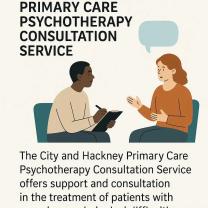What is the best medication for body aches?
The best medication for body aches can depend on the underlying cause of the pain and your individual circumstances. Different types of body aches may require different treatments. Here are some common over-the-counter (OTC) medications and their uses for various types of body aches:
Nonsteroidal Anti-Inflammatory Drugs (NSAIDs):
- Medications such as ibuprofen (Advil, Motrin) and naproxen (Aleve) are effective for relieving body aches associated with inflammation, such as those caused by injuries, muscle strains, or arthritis.
- NSAIDs can help reduce pain, inflammation, and swelling.
Acetaminophen (Tylenol):
- Acetaminophen is a pain reliever and fever reducer. It's often used for general pain relief, including body aches, headaches, and fever.
- It's generally well-tolerated but should be used with caution if you have liver problems or consume alcohol regularly.
Aspirin:
- Aspirin is another NSAID that can relieve pain and reduce inflammation.
- It's often used for body aches, headaches, and minor musculoskeletal pain.
- Aspirin should be used with caution in individuals with certain medical conditions, and it may not be suitable for everyone.
Topical Analgesics:
- Topical pain-relieving creams, gels, or patches can be applied directly to the skin over the painful area.
- These products can provide localized relief for muscle aches and joint pain.
Antihistamines:
- Some OTC antihistamines, like diphenhydramine (Benadryl), can cause drowsiness and are sometimes used to relieve body aches related to allergies or colds, especially when taken at bedtime.
Decongestants:
- OTC decongestants like pseudoephedrine (Sudafed) can help relieve body aches associated with sinus congestion and cold symptoms.
Muscle Relaxants (Prescription):
- For severe muscle spasms or tension-related body aches, a healthcare provider may prescribe muscle relaxant medications.
It's important to note that the choice of medication should be based on the specific type and cause of your body aches. Additionally, it's essential to follow dosing instructions, use OTC medications as directed, and be aware of potential interactions or contraindications, especially if you have underlying medical conditions or are taking other medications.
If your body aches persist, worsen, or are accompanied by other concerning symptoms, it's advisable to consult a healthcare professional for a proper evaluation and treatment recommendation. They can help identify the underlying cause of your pain and provide guidance on the most appropriate treatment options.
Relieving Body Aches: Finding the Best Medication
There are a variety of medications available to relieve body aches. The best medication for you will depend on the cause of your aches and the severity of your pain.
Over-the-counter (OTC) pain relievers are a good option for mild to moderate body aches. Common OTC pain relievers include acetaminophen (Tylenol) and ibuprofen (Advil, Motrin). These medications work by reducing inflammation and pain.
If OTC pain relievers are not effective, you may need to see a doctor for prescription medication. Prescription pain relievers are typically stronger than OTC pain relievers and can be more effective for severe pain. Common prescription pain relievers include naproxen (Aleve) and opioids (such as codeine and oxycodone).
Combatting Bodily Discomfort: Medications for Body Aches
When choosing a medication to relieve body aches, it is important to consider the following factors:
- The cause of your aches: Some medications are more effective for certain types of body aches than others. For example, ibuprofen is more effective for inflammation-related pain, while acetaminophen is more effective for fever and pain.
- The severity of your pain: OTC pain relievers are a good option for mild to moderate pain. Prescription pain relievers are typically necessary for severe pain.
- Your other medical conditions: Some medications can interact with other medications you are taking or can aggravate existing medical conditions. It is important to talk to your doctor about any other medical conditions you have before taking any medication.
Pain Relief Choices: Selecting the Right Medication for Body Aches
Here is a brief overview of some of the most common medications used to relieve body aches:
- Acetaminophen (Tylenol): Acetaminophen is a nonsteroidal anti-inflammatory drug (NSAID) that is effective for relieving mild to moderate pain and fever. It is also a good option for people with sensitive stomachs.
- Ibuprofen (Advil, Motrin): Ibuprofen is an NSAID that is effective for relieving mild to moderate pain and inflammation. It is a good option for people with muscle aches, headaches, and menstrual cramps.
- Naproxen (Aleve): Naproxen is an NSAID that is stronger than ibuprofen and acetaminophen. It is a good option for people with moderate to severe pain and inflammation.
- Opioids (such as codeine and oxycodone): Opioids are prescription medications that are used to treat moderate to severe pain. They are typically only used for short-term pain relief, as they can be addictive.
If you are unsure which medication is right for you, talk to your doctor. They can help you choose a medication that is safe and effective for your individual needs.
In addition to medication, there are other things you can do to relieve body aches, such as:
- Rest: Getting plenty of rest can help your body to heal.
- Apply heat or ice: Heat can help to relax muscles and relieve pain. Ice can help to reduce inflammation and pain.
- Take a warm bath or shower: A warm bath or shower can help to relax muscles and relieve pain.
- Massage: Massage can help to relax muscles and relieve pain.
- Stretching: Stretching can help to improve flexibility and reduce pain.
If you have body aches that are severe or do not improve with home treatment, see a doctor.













